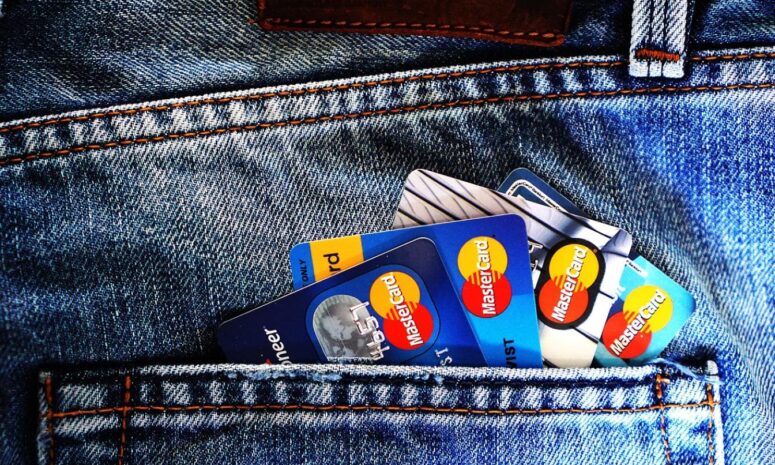
How to Plan Your Dream Vacation Without Breaking the Bank
Planning a dream vacation can feel daunting, especially when your budget is tight. However, with some clever strategies and a bit of patience, you can enjoy an unforgettable getaway without emptying your wallet. In this guide, I will walk you through every step of designing and booking an ideal holiday on a budget, answering key questions you may have along the way.
Why Start Planning Early?
Maximize Your Options
Starting early gives you the luxury of time and, therefore, allows more flexibility and more choices. The earlier you start, the more options you’ll find for your flights, accommodation, and activities. You’re usually open to early-bird specials and discounts by planning early. In most cases, airlines and hotels offer lower rates if you book a few months in advance.
Budgeting & Savings
Instead of being plagued with a large sum of money to be spent at once, one can lower the cost by planning it over a couple of months. Taking a small portion of your income and saving it at the beginning of the month will make you happier, but it will be less hurtful to yourself than you think. If you take these little pieces at once, then maybe you can indeed view your vacation dreams as very reliable and less stressful. To stop financial strain, you can choose the method of spending longer and thus avoid this issue.
Avoiding Last-Minute Hassles
When you plan ahead, you can meticulously research and organize each element of your trip, from flights and accommodations to sightseeing and dining options. This eliminates the frantic last-minute rush that often leads to poor decisions and unnecessary expenses. Additionally, a well-thought-out plan reduces the chances of encountering unpleasant surprises during your trip.
How does flexibility help your save money?
Travel Off-Peak
This is perhaps one of the most potent ways of economizing. Everything, from airfare to accommodation, comes cheaper off-season. Moreover, the major tourist places are less crowded, and thus one can have a better exposure to the places. Flexibility in your travel dates will definitely bring in fat savings.
Being Open to Different Destinations
Sometimes, being flexible with your destination is just as crucial as being flexible with your travel dates. Instead of fixating on one particular place, research multiple destinations and compare costs. You may find an equally exciting yet more affordable alternative. Various travel apps and comparison websites can assist you in finding the best deals for different locations.
Other Transportation and Routes
Be flexible with any mind or limit about modes of transportation. For instance, if the need arises to be in a particular location where the vacation spot isn’t too far, it might be of greater value to journey with the aid of a bus or train in preference to flying. Similarly, recollect some of prevent-off flights whilst choosing air travel. Clearly, different options have a lot economic savings in comparison with an instantaneous flight. This also way being amenable to all of the opportunities and keeping an open attitude.
What Some of the Effective Budget-Friendly Accommodation Options Are
Think about Airbnb, vacation rentals.
You can find numerous places to stay on websites such as Airbnb at very affordable prices. Quite often, you will find an entire apartment or even a house for a price that in a hotel you will get a small room. Such rentals frequently have extra amenities like kitchens that will enable one to save even more on food by cooking. And staying in a district rather than in the tourist part of the city is also much more authentic.
Hostels Aren’t Just for Backpackers
Hostels are no longer solely the domain of young backpackers. Many modern hostels offer private rooms and comfortable amenities while maintaining a social atmosphere and budget-friendly rates. Hostels can be an excellent option whether you’re traveling alone or with a group. They often organize activities and tours, which can further enhance your travel experience while saving you money.
Hotel Loyalty Programs and Points
If you prefer the comfort and services of hotels, consider joining hotel loyalty programs. These programs frequently offer members exclusive discounts, free nights, and other benefits. Accumulating points through your stays can eventually result in significant savings. Additionally, many credit cards offer hotel points as a part of their rewards program, allowing you to double-dip into savings.
How Can You Score the Best Flight Deals?
Utilize Fare Comparison Websites
Fare comparison websites like Skyscanner, Google Flights, and Kayak can be invaluable tools for finding the best flight deals. These platforms allow you to compare prices across multiple airlines and booking sites in one place. Setting up price alerts can also notify you when fares drop, helping you score the best deals without having to constantly check yourself.
Be Flexible with Your Travel Dates
Once again, flexibility plays a crucial role. If you’re able to be flexible with your travel dates, you can often find significantly lower fares by flying mid-week rather than on the weekend. Shoulder seasons, the periods just before or after the peak travel season, also tend to offer more affordable flight options. Adjusting your departure and return dates by just a day or two can sometimes make a big difference.
Consider Alternate Airports
Sometimes flying into or out of a smaller, lesser-known airport can save you a significant amount of money. For example, if you’re going to a major city, look for flights to nearby smaller cities and then take a bus or train into your final destination. This approach can sometimes be more economical, even when factoring in the additional travel time and cost.
What are the greatest methods to save money on dining?
Eating Where the Locals Eat
One of the best ways to enjoy delicious, authentic, and affordable food is to eat where the locals eat. Avoid tourist traps with flashy signs and English menus. Instead, wander a bit off the beaten path to find local eateries that offer better prices and more genuine culinary experiences. Additionally, street food is often a fantastic way to enjoy local flavors without spending a fortune.
Grocery Shopping and Picnic Meals
Grocery shopping is an overlooked yet excellent way to save money on meals. Buying local produce, snacks, and drinks from grocery stores lets you experience local cuisine affordably. Many grocery stores also have prepared food sections where you can get ready-to-eat meals. Consider having a picnic in a local park, which adds a delightful, scenic touch to your dining experience.
Take Advantage of Happy Hours and Specials
Many bars and restaurants offer happy hour specials where drinks and appetizers are available at discounted rates. Take advantage of these bargains to enjoy local cuisine and drinks without going overboard. Some restaurants also offer daily specials or prix-fixe menus that provide an affordable way to sample multiple dishes.
How Can You Save on Activities and Attractions?
Look for Free or Low-Cost Activities
Many cities offer a plethora of free or low-cost activities, including museums, parks, walking tours, and cultural events. Do a bit of research to find out what free activities are available at your destination. Some museums offer free entry on certain days of the month, and many cities have beautiful public spaces that are perfect for exploring.
Use City Passes and Tourist Cards
Several popular tourist destinations offer city passes or tourist cards that provide access to multiple attractions at a discounted rate. These passes often include entry to major sights and sometimes even include public transportation. If you plan on visiting several attractions, these passes can be a cost-effective way to explore your destination.
Group Discounts and Off-Peak Rates
Look for group discounts if you’re traveling with family or friends. Many attractions provide reduced fees for groups. Additionally, visiting attractions during off-peak hours or seasons can result in lower entry fees. Some places also offer discounted rates for students, seniors, or members of certain organizations, so it’s worth asking about any available discounts.
How Can You Effectively Manage Transportation Costs?
Public Transportation Over Taxis
Opting for public transportation over taxis or rideshares can significantly cut your travel expenses. Many cities offer daily or weekly passes that provide unlimited travel on buses, trains, and trams. These passes are often very economical and give you the freedom to explore the city without worrying about the cost of each ride. Study local transit maps and schedules to make the most of this option.
Walking and Biking
Not only is walking one of the best ways to see a new place up close, but it’s also free. Many cities are very walkable, and some even offer free walking tours led by knowledgeable guides. Biking is another excellent option, with many places providing affordable bike rentals or bike-sharing programs. Both walking and biking allow you to take in the sights at your own pace while saving money.
Car Rentals and Carpooling
If you’re planning to explore areas outside urban centers, renting a car might be the best option. However, car rentals can be expensive, so look for deals and book in advance. Additionally, consider carpooling options like BlaBlaCar, which can lower costs by sharing the ride with others heading in the same direction. This can be a social and economical way to travel.
What are the greatest ways to communicate when traveling?
Local SIM Cards or Portable Wi-Fi
Purchasing a local SIM card for your phone can save you a lot of money compared to international roaming charges. Local SIM cards usually offer affordable plans with data, calls, and texts. Portable Wi-Fi devices are another option, especially if you need to connect multiple devices. These devices allow you to have internet access anywhere, helping you navigate and stay connected without incurring high costs.
Use Free Wi-Fi
Taking advantage of free Wi-Fi in hotels, cafes, and public spaces is another way to stay connected while saving money. Many establishments, including restaurants and museums, offer complimentary Wi-Fi to their patrons. Use these opportunities to catch up on emails, upload photos, or make plans for the day without using your data plan.
Communication Apps
Apps like WhatsApp, Skype, and Viber allow you to make free calls and send messages over the internet. These apps are incredibly handy for keeping in touch with family and friends back home or coordinating with travel companions. Download these apps before your trip and familiarize yourself with their features to make communication seamless and cost-effective.
How Can You Make Your Money Go Further Abroad?
Currency Exchange and Fees
Exchange rates and fees can take a chunk out of your travel budget, so it’s essential to be savvy about currency exchange. Compare rates at various places, such as banks, exchange kiosks, and online services, to find the best deal. Avoid exchanging money at airports, where rates are typically the least favorable. Using a credit card with no foreign transaction fees can also help you save on extra costs.
Budgeting Apps
Budgeting apps like Mint or YNAB can help you keep track of your spending in real time. These apps allow you to set daily or weekly spending limits and notify you when you’re nearing them. This can be especially useful in managing your funds and ensuring you stick to your budget while enjoying your vacation.
Negotiate When Appropriate
In many cultures, haggling is a common practice, especially in markets and with street vendors. Do not be scared to negotiate for a better price. Learning a few phrases in the local language can go a long way in such situations. However, always be respectful and know when to accept a price to avoid offending the seller.
How Can You Travel with Minimal Luggage?
Pack Smart and Light
Traveling with minimal luggage can save you money on airline baggage fees and make your journey more comfortable. Prioritize packing versatile clothing items that can be mixed and matched, and consider doing laundry during your trip to reduce the amount of clothing you need. Packing cubes can help organize and compress your belongings, making more efficient use of space.
Essential Gadgets and Tools
Consider bringing essential gadgets and tools that will make your trip more convenient. Items like a portable charger, a reusable water bottle, and a compact camera can enhance your travel experience without taking up much space. Make a checklist of must-have items and stick to it to avoid overpacking.
Carry-On Only
Whenever possible, aim to travel with carry-on luggage only. This saves you time waiting for checked bags and eliminates the risk of lost luggage. Most importantly, it helps you avoid checked baggage fees. Familiarize yourself with the carry-on size and weight restrictions of the airline you’re flying with to ensure compliance and a smoother travel experience.
What Safety Measures Should You Take?
Travel Insurance
Investing in travel insurance is a wise decision, even when traveling on a budget. Travel insurance can protect you from unforeseen events such as medical emergencies, trip cancellations, or lost luggage. The peace of mind it brings is definitely worth the price. Compare different plans and choose one that covers all essential aspects of your trip.
Keeping Valuables Safe
Always be cautious about where you keep your valuables. Use a money belt or hidden pouch to keep your cash, passport, and important documents secure. When staying in accommodations, use the safe provided to store valuables. Additionally, make copies of essential documents such as your passport and insurance information in case of loss or theft.
Awareness and Preparedness
Being aware of your surroundings and being up to date on local safety conditions is critical. Research common scams in your destination and take necessary precautions to avoid them. Understand emergency contact information and the location of the nearest embassy or consulate. A little preparedness can go a long way in ensuring a safe and worry-free vacation.
How Can You Make the Most of Deal Websites and Apps?
Travel Deal Sites
Websites like Groupon, LivingSocial, and Travelzoo often feature significant discounts on accommodations, dining, and activities. Subscribe to their newsletters and keep an eye on their deals, particularly for the destination you plan to visit. These websites frequently offer promotional codes or flash sales that can lead to substantial savings.
Flight Deal Newsletters
Sign up for newsletters from flight deal websites such as Scott’s Cheap Flights or Airfarewatchdog. These services specialize in finding and sharing limited-time flight deals, often allowing you to snag tickets at a fraction of the usual cost. Keep in mind that these deals are usually time-sensitive, so be ready to book quickly when you find one that fits your travel plans.
Coupons and Discount Codes
Searching for coupons and discount codes before making any bookings can result in significant savings. Websites like RetailMeNot and Honey compile codes for a range of travel services, including hotels, car rentals, and tours. Always do a quick search for available discounts before finalizing any travel-related purchases.
How Can You Leverage Social Media for Savings?
Follow Travel Bloggers and Influencers
Many travel bloggers and influencers share exclusive deals, tips, and discount codes with their followers. Following these personalities on social media platforms can provide you with insider information on affordable travel options. Additionally, their content often includes valuable insights and recommendations for budget-friendly travel.
Join Travel Groups and Forums
Online travel communities, such as groups on Facebook or forums like Reddit’s r/travel, can be excellent resources for finding deals and gathering advice. These communities are filled with experienced travelers who share their knowledge and tips on saving money. Engaging with these groups can help you discover deals and gain valuable insights into your destination.
Participate in Travel Contests and Giveaways
Many travel-related brands and organizations run contests and giveaways on social media. Participating in these events can give you a chance to win free trips, accommodations, or other travel-related prizes. While the odds of winning may be slim, it’s a zero-cost opportunity that could result in significant savings.
How Can You Utilize Free Walking Tours?
Research Available Tours
Many cities offer free walking tours that are led by knowledgeable local guides. These tours are an excellent way to explore and learn about your destination without spending a lot of money. Research available tours in your destination by checking websites like Free Tours by Foot or Sandemans New Europe for offerings in the cities you plan to visit.
Budget-Friendly and Informative
Free walking tours are typically run on a tipping basis. While they are called “free,” it is customary to tip the guide at the end of the tour based on what you feel the experience was worth. These tours often provide a rich narrative of local history and culture, making them both cost-effective and informative.
Meet Fellow Travelers
Joining free walking tours also gives you the opportunity to meet fellow travelers with whom you might share other budget-friendly activities. These tours can be social events that enhance your travel experience by creating connections with like-minded adventurers. Sharing tips and recommendations with new friends can further improve your budget travel strategies.
What Are the Best Ways to Get Authentic Experiences?
Connect with Locals
Connecting with locals can provide you with unique and authentic travel experiences that are often more affordable than the typical tourist spots. Apps like Meetup and Couchsurfing offer opportunities to join local events or meet residents who can offer insights and recommendations. Engaging with locals can lead to discovering hidden gems that are both budget-friendly and memorable.
Use Peer-to-Peer Services
Peer-to-peer services like EatWith and Vayable allow you to book experiences hosted by locals, such as home-cooked meals or private tours. These experiences often provide a more authentic and personal perspective of the destination compared to conventional tourist offerings. Plus, they are generally more affordable and foster a deeper cultural connection.
Volunteer Travel
Consider volunteering as a way to immerse yourself in the local culture while giving back to the community. Organizations like WWOOF (World Wide Opportunities on Organic Farms) and Workaway allow you to work in exchange for food and accommodation. This not only helps you save money but also provides a fulfilling and enriching travel experience.
What should you do to avoid tourist traps?
Do Thorough Research
Tourist traps are often high-priced and offer subpar experiences. To avoid them, do thorough research using travel guides, blogs, and forums. Look for recommendations from seasoned travelers and trustworthy sources. Identifying genuine, worthwhile attractions in advance helps you avoid overpriced and overcrowded spots.
Take Recommendations from Locals
Locals can provide invaluable advice on avoiding tourist traps. Ask residents about their favorite places to eat, shop, and visit. Often, locals will point you towards hidden gems that are more affordable and authentic compared to typical tourist attractions. Engaging with residents and seeking their recommendations can dramatically enhance your experience.
Look for Lesser-Known Attractions
Consider visiting lesser-known attractions and off-the-beaten-path destinations. These places often provide rich, meaningful experiences without the high costs associated with popular tourist spots. Researching and exploring these hidden gems can result in more affordable and unique adventures, allowing you to get the most out of your travel budget.
How Can You Handle Unforeseen Expenses?
Create an Emergency Fund
Even with meticulous planning, unforeseen expenses can arise during your trip. Create an emergency fund specifically for your vacation to cover unexpected costs such as medical emergencies, missed transportation, or sudden changes in plans. Setting aside a small amount of your budget for this purpose can provide peace of mind.
Utilize Credit Cards Wisely
Responsible use of credit cards can be a helpful tool in managing unforeseen expenses. Opt for cards with no foreign transaction fees, and look for those that offer travel insurance or purchase protection as part of their benefits. Be cautious with credit card use to avoid accumulating debt, and aim to pay off any charges promptly to avoid interest fees.
Be Adaptable
Flexibility and adaptability are crucial when dealing with unforeseen expenses. If an unexpected cost arises, consider adjusting your plans to offset the expense. For example, if you overspend on one activity, look for free or low-cost alternatives for the remainder of your trip. Being open to change and having a flexible mindset can help you navigate financial hiccups without stress.
How Should You Document Your Budget Trip?
Keep a Travel Journal
Maintaining a travel journal is a fantastic way to document your budget trip. Record your daily activities, spending, and reflections. This can help you keep track of your expenses and serve as a cherished memento of your experiences. Putting down your adventures allows you to relive them and can be a useful reference for future visits.
Use Budget Tracking Apps
Budget tracking apps can be instrumental in documenting your spending and ensuring you stay within your budget. Apps like Trail Wallet or TravelSpend are designed specifically for travelers and allow you to categorize expenses, set budget limits,
and monitor your spending in real-time. Keeping detailed financial records will help you understand where your money is going and make any necessary adjustments.
Share Your Experiences
Sharing your travel experiences on social media platforms, blogs, or travel forums can be both rewarding and helpful to others planning similar trips. Posting your photos, tips, and budget insights not only allows you to document your journey but also contributes to the travel community. By sharing your stories and advice, you can inspire others to embark on budget-friendly adventures.
How to Prepare for Cultural Differences?
Learn Basic Local Phrases
Learning some basic phrases in the local language might go a long way. “Hello,” “thank you,” and “excuse me” are phrases that demonstrate respect and a willingness to participate with local culture. Even a small effort in learning the language can make interactions smoother and more pleasant, often resulting in more favorable treatment from locals.
Research Local Customs and Etiquette
Understanding local customs and etiquette is crucial for respectful and enjoyable travel. Research the cultural norms, dress codes, and social behaviors of your destination. Being aware of what is considered polite or rude in the local context will help you avoid misunderstandings and show respect for the local culture.
Be Open-Minded and Respectful
Cultural differences can sometimes be challenging, but approaching them with an open mind and a respectful attitude makes a huge difference. Embrace the differences as part of the adventure and be willing to step out of your comfort zone. Respecting local traditions and practices adds depth to your travel experience and fosters positive interactions.
How can you stay healthy while on your trip?
Prioritize Vaccinations and Health Checks
Before embarking on your journey, ensure that you are up-to-date on necessary vaccinations and health checks. Consult with a travel clinic or healthcare provider to understand what specific vaccinations or medications are recommended for your destination. Taking these precautionary measures helps you avoid health issues that could disrupt your trip.
Pack a Basic First-Aid Kit
Bringing a basic first-aid kit can be a lifesaver. Include essentials such as band-aids, antiseptic wipes, pain relievers, and any prescribed medications. Having these items readily available can help you handle minor ailments and injuries without the need to seek out pharmacies or medical facilities. Consider also packing any specific medications you might need, such as motion sickness pills or allergy medicine.
Maintain a Balanced Diet and Hydration
Travel often disrupts regular eating and hydration routines. Make a conscious effort to maintain a balanced diet and drink plenty of water. Consuming a variety of local and nutritious foods not only keeps you healthy but also enhances your cultural experience. Avoid excessive consumption of alcohol and sugary drinks, and always ensure that the water you drink is safe.
How to Ensure a Sustainable and Eco-Friendly Trip?
Choose Eco-Friendly Accommodations
Opt for eco-friendly accommodations that prioritize sustainability practices. Many hotels and hostels are implementing green initiatives such as energy conservation, waste reduction, and using eco-friendly products. Platforms like Ecobnb and Green Key help you find environmentally responsible lodging options that align with your values.
Reduce Plastic Usage
Minimizing plastic usage is a simple yet impactful way to travel sustainably. Bring reusable items such as a water bottle, shopping bag, and travel-sized toiletries. Avoid using single-use plastics whenever feasible, and support businesses that promote sustainability. Small steps like these help greatly reduce your environmental footprint.
Support Local and Sustainable Tourism
Supporting local businesses and sustainable tourism initiatives helps preserve the environment and benefits the local community. Choose tours and activities operated by locals, and be mindful of the environmental impact of your actions. Respect natural sites, avoid contributing to overtourism, and seek out authentic experiences that promote cultural and environmental sustainability.
Is It Worth Investing in a Travel Guidebook?
Benefits of a Travel Guidebook
Investing in a travel guidebook can be incredibly beneficial, especially for budget travelers. Guidebooks often include detailed information on free and low-cost activities, budget-friendly dining options, and tips for saving money. They provide historical and cultural context that can enhance your travel experience and help you get the most out of your trip.
Alternative Resources
While guidebooks are valuable, there are numerous alternative resources available online. Travel blogs, forums, and websites offer up-to-date and diverse perspectives on various destinations. Apps like TripAdvisor and Yelp provide real-time reviews and recommendations from fellow travelers. Using a combination of guidebooks and online resources ensures that you have comprehensive and current information.
Portable and Convenient
Guidebooks are portable and can be used offline, which is convenient when you are in areas with limited internet access. Having a physical book allows you to mark pages, make notes, and quickly refer back to essential information. This can be particularly useful for managing your itinerary and exploring destinations without relying on electronic devices.
FAQs
How long ahead of time should I prepare?
Ideally, plan your trip at least six months in advance. This gives you plenty of time to research, book, and save for your vacation without feeling rushed. Early planning increases the chances of scoring deals on flights, accommodations, and activities.
Is it necessary to get travel insurance?
Yes, travel insurance is a valuable investment. It protects against unanticipated situations like medical emergencies, vacation cancellations, and missing luggage. The peace of mind it offers makes it a small price to pay for the security and protection it provides.
What Are the Essentials for a Budget Packing List?
Essentials for a budget-friendly packing list include versatile clothing, a reusable water bottle, travel-sized toiletries, a basic first-aid kit, and essential gadgets like a portable charger. Packing light and smart helps you avoid additional baggage fees and makes your journey more comfortable.
How Can I Stay Connected Without High Costs?
Using local SIM cards, portable Wi-Fi, and free Wi-Fi from hotels, cafes, and public spaces can help you stay connected without incurring high costs. Communication apps like WhatsApp and Skype also provide free messaging and calls over the internet.
Can I Travel Comfortably on a Tight Budget?
Absolutely. With careful planning, flexibility, and smart choices, you can enjoy a comfortable and fulfilling vacation on a tight budget. Following the tips and strategies outlined in this guide will help you maximize your travel experience without breaking the bank.
Conclusion
Planning a dream vacation without breaking the bank is entirely possible with the right approach and a bit of ingenuity. By being flexible, doing thorough research, leveraging technology, and making smart choices, you can create a memorable and affordable travel experience. Whether it’s through early planning, taking advantage of deals, or making thoughtful decisions about accommodations and activities, every step contributes to a budget-friendly yet enriching trip. Embrace the adventure, enjoy the journey, and create memories that will last a lifetime, all without stretching your finances. Safe travels!
Post Disclaimer
The information contained in this post is for general information purposes only. The information is provided by How to Plan a Dream Vacation Without Breaking the Bank and while we endeavour to keep the information up to date and correct, we make no representations or warranties of any kind, express or implied, about the completeness, accuracy, reliability, suitability or availability with respect to the website or the information, products, services, or related graphics contained on the post for any purpose.




